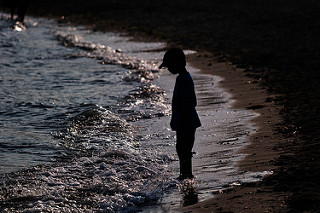 Human Rights Watch released the report Without Dreams: Children in Alternative Care in Japan assessing the impact these care facilities have upon children who live there. As of 2013, more than 39 thousand children lived in institutions rather than in a family setting. The report identified problems with child care institutions, including abuses that take place and long-term implications for these children.
Human Rights Watch released the report Without Dreams: Children in Alternative Care in Japan assessing the impact these care facilities have upon children who live there. As of 2013, more than 39 thousand children lived in institutions rather than in a family setting. The report identified problems with child care institutions, including abuses that take place and long-term implications for these children.
“It’s heartbreaking to see children crammed into institutions and deprived of the chance for life in a caring family setting. While other developed countries place most vulnerable children in family-based care, in Japan, a shocking 90 percent end up in institutions,” explained Kanae Doi, director of Human Rights Watch for Japan.
Children end up in institutional childcare after having been either abandoned or taken from unfit parents by the government. Rather than send these children to foster care or adopt them out to new families, the Japanese system assigns most children to institutions where they are deprived of caring family relationships and commonly subjected to abuses.
Infant care institutions, child care institutions, and short-term therapeutic institutions are often understaffed and overcrowded. As a result, the well-being and development of the children living there suffer. These children have insufficient access to education and live in poorly maintained facilities with poor hygiene and a lack of privacy. Many also become victims of physical and sexual abuse by caretakers or other institutionalized children.
Growing up under these conditions, children experience lifelong difficulties including developmental and learning disabilities, high rates of unemployment and underemployment, homelessness and other social difficulties.
According to the Convention on the Rights of the Child, children “should grow up in a family environment, in an atmosphere of happiness, love and understanding…the institutionalization of a child is a measure of last resort and only occurs when family-type measures are considered inadequate for a specific child.”
This does not happen in Japan where child guidance centers preferentially assign children to institutions rather than pursue adoption or foster care. This allows centers to avoid spending large amounts of time finding individual children a more acceptable living situation. It also benefits institutions which financially benefit from government subsidies that pay based upon the number of children in residence.
Doi called for Japan to reform its alternative care system, stating that “Japan’s child care policymakers are allowing bureaucratic priorities to get in the way of finding alternative care that is in the child’s best interest. While many people working in the system are committed to helping children, a sustainable solution should recognize that foster care and adoption need to play a much more central role.”
Creative Commons Love: Halfrain on Flickr.com

















